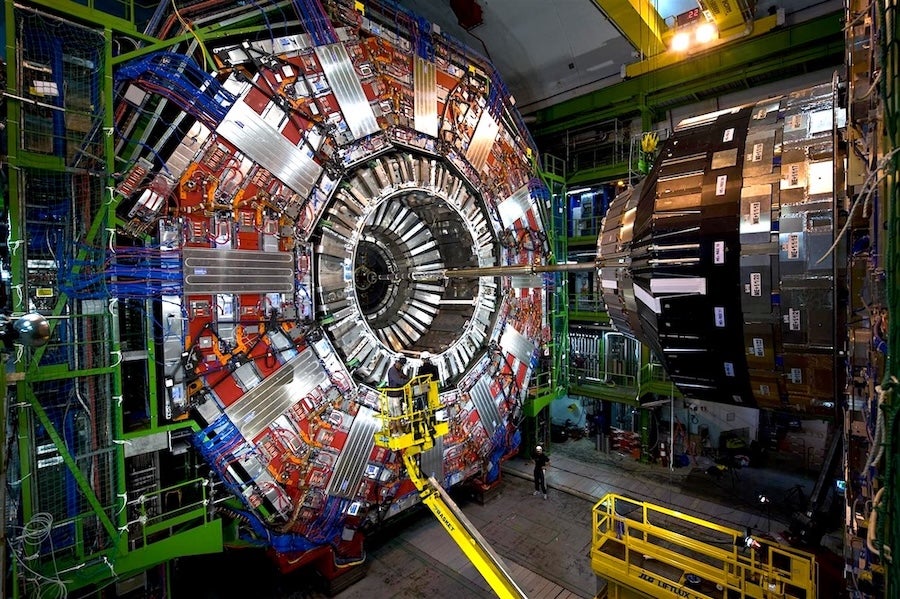An international team of physicists, including Rice University’s Paul Padley, Frank Geurts, Karl Ecklund, Wei Li and Darin Acosta, this week was awarded the 2025 Breakthrough Prize in Fundamental Physics for research on the Higgs boson and the exploration of nature at the shortest distances and under the most extreme conditions.

The prize, which honors the world’s top scientists in fundamental physics, life sciences and mathematics, was awarded to more than 13,000 physicists who contributed to the four large experiments at the Large Hadron Collider (LHC), including the Compact Muon Solenoid (CMS) experiment at the European Organization for Nuclear Research (CERN). The Rice researchers were recognized for their pioneering work in particle physics, including precise measurements of Higgs boson properties that confirm the symmetry-breaking mechanism of mass generation and their studies of the quark-gluon plasma, a state of extremely hot and dense matter that existed shortly after the big bang.
“This recognition underscores the power of international collaboration in scientific discovery,” said Padley, professor of physics and astronomy. “To be part of the team helping unlock nature’s fundamental secrets is deeply rewarding.”
The CMS experiment, one of four major LHC detectors, played a pivotal role in verifying the mechanism by which fundamental particles acquire mass through interaction with the Higgs field. Breakthroughs by the CMS team include precise measurements of the Higgs boson’s properties, the discovery of rare particle interactions and new insights into symmetry breaking — a fundamental aspect of the standard model of particle physics.
Their work also offers a window into the extreme conditions that existed moments after the big bang. While the Higgs boson’s discovery was announced in 2012, uncovering its complete characteristics remains an active and ongoing scientific pursuit.

Numerous Rice students, postdoctoral researchers and alumni contributed to the project, including Antony Adair, Bora Akgün, Austin Baty, Ulf Behrens, Zhenyu Chen, Osvaldo Miguel Colin, Sven Dildick, Sarah Freed, Parker Gardner, Maxime Guilbaud and Iason Krommydas.
Additional contributors include Matthew Kilpatrick, Arun Kumar, Andre Govinda Stahl Leiton, Jiazhao Lin, Pedro Fernandez Manteca, Ben Michlin, Ted Nussbaum, Radia Redjimi, Jamal Rorie, John Rotter, Wei Shi, Benjamin Tran, Zhoudunming Tu, Shuai Yang, Zaochen Ye, Efe Yigibasi, James Zabel, Yousen Zhang and the late Jay Roberts.
The Breakthrough Prize, often called the “Oscars of Science,” was founded in 2012 by tech leaders including Sergey Brin, Priscilla Chan, Mark Zuckerberg, Anne Wojcicki, Julia Milner, and Yuri Milner. Open to all physicists whether theoretical, mathematical or experimental, the prize recognizes those advancing our understanding of the universe’s most profound mysteries.
The $3 million prize is shared among all recipients. The prize money supports grants for doctoral students from member institutions to conduct research at CERN.
“The questions these laureates are asking are among the deepest questions there are about the workings of life, the nature of the universe and the abstract landscapes of mathematics,” Yuri Milner said. “It’s inspiring to see scientists seeking and finding answers to these questions.”

